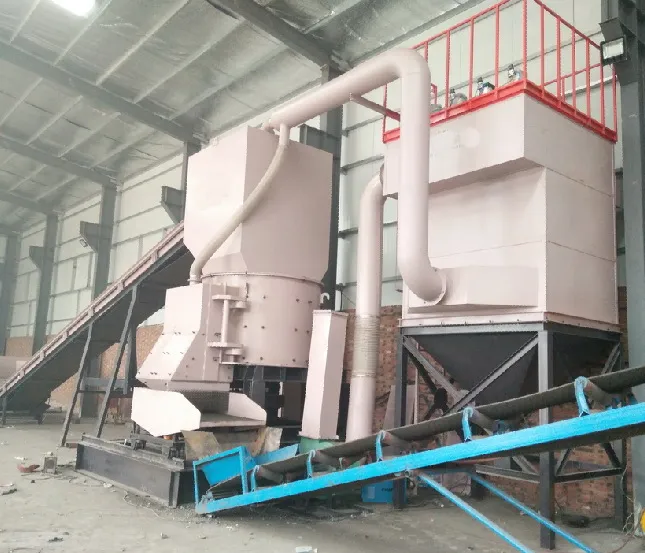

sept. . 25, 2024 01:06 Back to list
Understanding Industrial Shredder Prices Factors, Variations, and Considerations
Industrial shredders have become pivotal tools in various industries, serving to dispose of waste efficiently and safely. From manufacturing plants to recycling facilities, the demand for effective waste management solutions has led to a growing market for industrial shredders. However, one key aspect that many businesses must navigate is pricing. Understanding the factors that influence industrial shredder prices can assist companies in making informed purchasing decisions.
Factors Influencing Industrial Shredder Prices
1. Type of Shredder The type of industrial shredder significantly affects its price. Shredders come in various forms, including single-shaft, two-shaft, and four-shaft models. Single-shaft shredders tend to be less expensive but may not handle tougher materials as effectively as their multi-shaft counterparts. Two-shaft and four-shaft shredders are often more expensive due to their advanced engineering and ability to process a wider range of materials.
2. Capacity and Size Industrial shredders vary greatly in size and processing capacity. Larger shredders capable of handling high volumes of waste tend to come at a premium price. Buyers should assess their waste output and choose a model that meets their needs without overspending on unnecessary capacity.
3. Material Specifications The materials that a shredder is designed to process can also affect its price. Shredders meant for hard materials like metals or dense plastics will typically have more robust and durable components, which can increase costs. Conversely, shredders designed for softer materials or waste streams may be more affordable.
4. Technology and Features Modern shredders often come equipped with advanced technology and features. Models with automatic feed systems, noise reduction capabilities, and enhanced safety features tend to fetch higher prices. Investing in technology can improve efficiency and safety but requires a careful evaluation of whether the additional features are necessary for specific applications.
5. Brand Reputation Well-established manufacturers with a track record of reliability and customer service often charge premium prices for their products. While investing in a renowned brand can provide assurance of quality and support, emerging brands might offer similar functionality at a lower cost. It's essential to research and consider all available options.

Market Variations and Pricing Trends
The price of industrial shredders can vary significantly based on market conditions, geographical location, and demand trends. On average, the cost of industrial shredders can range from a few thousand dollars to tens of thousands, with high-end models exceeding these price points. During economic downturns, demand for shredders may dip, prompting manufacturers to adjust their pricing strategies, while a surge in recycling initiatives or manufacturing can increase demand and prices.
Buyers should also be aware of seasonal fluctuations in prices, as certain times of the year may see increased demand, leading to higher costs. Additionally, the supply chain dynamics influenced by global events can impact availability and pricing.
Considerations for Buyers
When selecting an industrial shredder, potential buyers should conduct a comprehensive analysis of their specific requirements, considering factors such as the types of materials to be shredded, processing volume, available space, and budget constraints. It is advisable to obtain quotes from multiple suppliers and compare features, warranties, and after-sales support.
Moreover, understanding the total cost of ownership is crucial. This includes not only the initial purchase price but also operational costs, maintenance, and potential downtime costs. Investing in a reliable and efficient shredder might have a higher upfront cost but can lead to significant savings in the long run.
In summary, while industrial shredder prices may vary widely based on various factors, thorough research and careful consideration can lead to a choice that meets both operational needs and budgetary constraints. With the right shredding solution, businesses can enhance their waste management processes, contributing to operational efficiency and sustainability.
Latest news
The Future of Metal Recycling: Revolutionizing Waste Management
NewsMay.14,2025
Optimizing Waste with Recycling Lines
NewsMay.14,2025
Municipal Solid Waste Sorting Line: Revolutionizing Waste Management
NewsMay.14,2025
Metal Shredders: Essential Tools for Efficient Recycling
NewsMay.14,2025
Maximize Your Profits with a Copper Wire Granulator
NewsMay.14,2025
Home Metal Shredder: A Smart Choice for Your Home Recycling Needs
NewsMay.14,2025